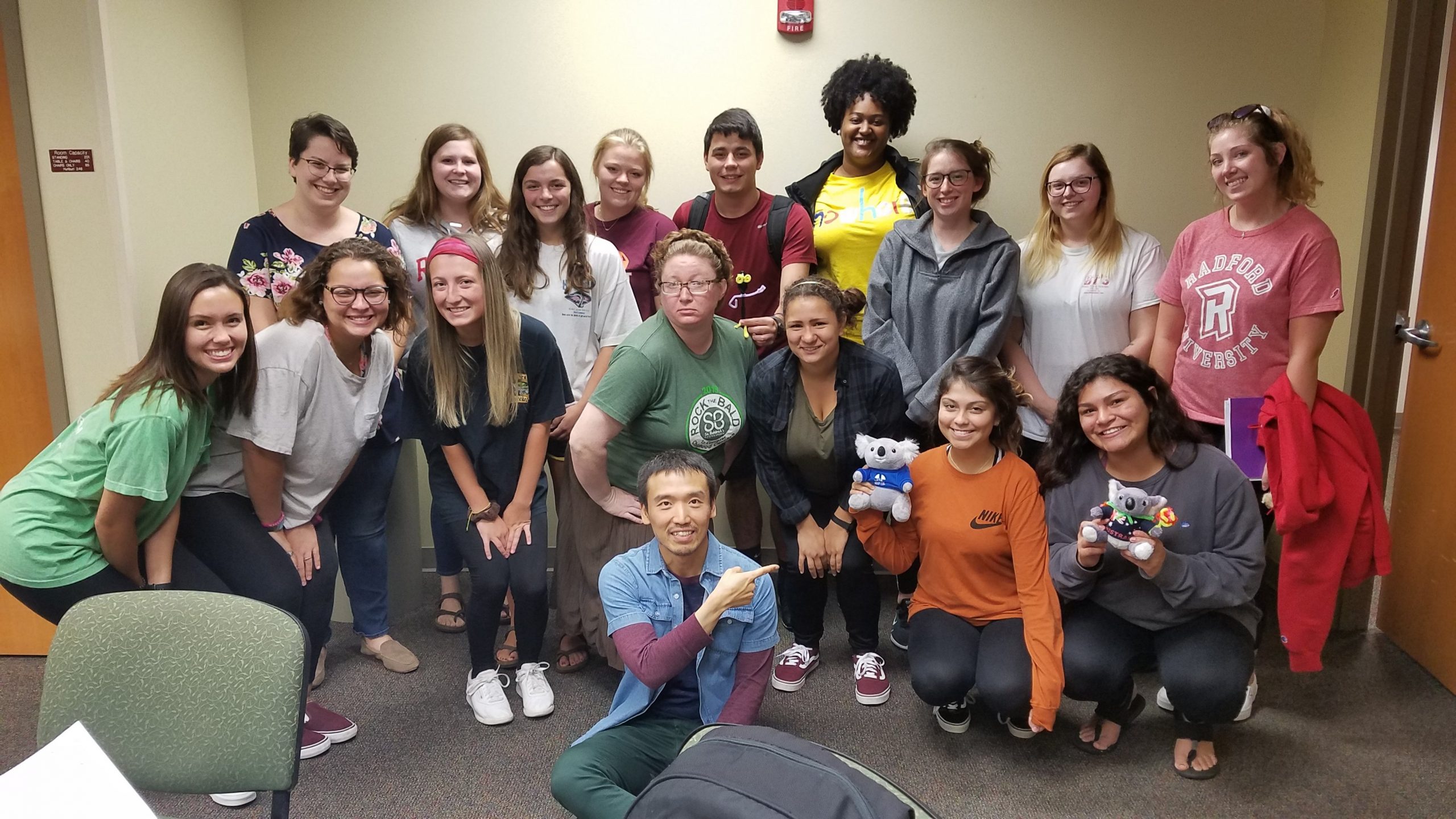Mental Health First Aid Instructor Advocates for PA Students
PA Students Exposed to Long-Term Stress Need Mental Health Support
November 30, 2020
By Hwal Lee

The demands of PA school are not like the normal stresses of life, and every PA student is at risk of mental health challenges, although some of us are affected more (and differently) than others. Mental health challenges can be incredibly debilitating for PA students, and include self-criticism and self-doubt, sleep deprivation and chronic fatigue, loss of motivation, substance abuse and misuse, suicidal thoughts and behaviors, and worsening symptoms of existing mental or substance use disorders.
Self-care can be lifesaving in PA school. So much of our education focuses only on taking care of others, and we need to invest time and effort in learning and improving how to take care of ourselves. It’s in the best interests of the profession, including PA educators, to actively promote and support PA students’ mental health and well-being. Doing so benefits both PA students and their future patients. However, no published guidelines currently exist to support PA students’ mental health proactively and consistently. As a current PA student, a Mental Health First Aid (MHFA) instructor, and behavioral health advocate, I felt compelled to address the need for increased support of PA students’ mental health. My own experience as an MHFA instructor gave me the idea to evaluate the effectiveness of evidence-based MHFA training for PA students regarding mental health literacy and stigma, awareness of resources, and practical application.
[Access AAPA’s student resources for support at every step – join or renew your membership today]
Researching student mental health training
I turned this idea into a ePoster submission for AAPA 2020. The results from the study indicate that MHFA presents an effective strategy to support PA students’ mental health, and that PA students may benefit more from earlier mental health training. MHFA emphasizes the role of culture, self-care, resilience, and trauma as they relate to a person’s mental health. Such a humanistic focus around mental health and mental illness is a notable juxtaposition and a welcome complement to how mental health (i.e., psychiatry, behavioral medicine) is typically taught in PA education.

Much of the existing dialogue about student mental health tends to focus more narrowly on specific disorders that must be diagnosed and treated, as in a clinical encounter. Instead, I believe we need to take a holistic, proactive approach which, among other things, removes known barriers to help-seeking while creating a cultural and educational environment that values and fosters personal well-being as much as medical knowledge.
[Call for Submissions: AAPA 2021 Now Accepting Research in Action and ePoster Submissions]
One of the common misunderstandings I have encountered is that MHFA training is somehow inappropriate or too basic for certain groups of individuals, such as PAs and PA students. The truth is that the skills, knowledge, and values learned in MHFA should complement medical training to help current and future PAs better support their patients or clients within job roles, as well as family and friends outside of workplace. In fact, I have had incredibly diverse groups of individuals at my previous trainings, including PAs, PA students, physicians, teachers, retirees, farmers, social workers, caregivers and other healthcare professionals. And the responses to the training have been overwhelmingly positive and encouraging.
Continued advocacy for the profession and student mental health
Throughout this year, I have been invited to present the study findings at regional, state, national, and international conferences. There have been several personal highlights: my poster submission for AAPA 2020 was selected as one of three winners of the annual JAAPA Student Poster Award. I am thrilled to be able to share my research with a global audience of thousands of medical and other health professions educators via an oral presentation at the annual conference for the Association for Medical Education in Europe – An International Association for Medical Education.
Along the way, I found opportunities to advocate for the PA profession. Firstly, I lobbied last year with Mental Health First Aid USA for inclusion of PAs in Adult MHFA learning materials as a source of appropriate professional help. And with the release of the new MHFA curriculum in July 2020, PAs have now been included in the new Adult MHFA learning and teaching materials under “Advanced Practitioners,” along with nurse practitioners.
Then, while preparing for the International Association for Medical Education conference, I realized that many of the attendees would be unfamiliar with PAs. Working with my faculty mentor, I incorporated information on the training and scope of practice of PAs in my recorded presentation to educate conference attendees. In the presentation, I highlighted the rigorous training and education of PAs in the U.S. and related this to the observed mental health effects on PA students, which was a springboard for my research in the first place.
Hwal Lee is a certified Mental Health First Aid instructor and a PA Foundation 2018 Mental Health Outreach Fellow. He is currently a student at Radford University Carilion PA program. View his AAPA 2020 ePoster here.
Read more
Strategies to Manage Cognitive Load in PA School
Getting Ahead of Burnout: Experts Share Tips for Provider Well-being
It’s Not Just You: The Pressures of PA School
Thank you for reading AAPA’s News Central
You have 2 articles left this month. Create a free account to read more stories, or become a member for more access to exclusive benefits! Already have an account? Log in.



